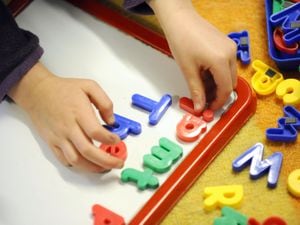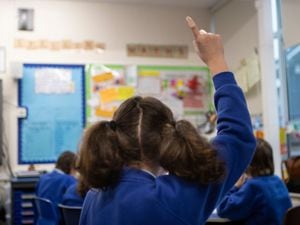Gaps in school readiness may increase as parents keep children out of nurseries
The pandemic poses a risk to the development and education of pre-school children, a report warns.

The Covid-19 pandemic poses a risk to the development of children under five, a report has warned.
Gaps in school readiness are likely to increase as many parents are opting not to send their children back into early years settings following closures, according to the Nuffield Foundation evidence review.
Parental income and level of education play a large part in shaping early childhood experience – and this is exacerbated as the younger generation faces an uncertain start in life due to Covid-19, the report says.
It warns that the childcare sector is now “in danger as a result of long-term closure and potentially reduced demand as a result of the recession”.
A large proportion of children under five will have missed around six months of being in an early years setting or reception class and this has already had an impact on children’s learning and development, especially for children from lower income households, according to the Nuffield Foundation.
“Gaps in school readiness are significant and likely to widen as a result of a combination of reduced early education, as well as inequalities in the home learning environment and access to digital resources and experiences,” the report says.
It adds that mothers have been “particularly badly hit” by lockdown and the closure of childcare settings.
“While both parents have increased the amount of time spent on childcare, women are spending more time, thus further widening the pre-existing gender gap,” the report says.
The evidence review, which draws on over 130 research studies to assess the extent of changes to family life in the UK over the last 20 years, concludes that the income and education level of parents are more important for children’s outcomes than whether parents are lone, married, cohabiting or separated.
It adds that Covid-19 is increasing financial insecurity and poses a risk to children’s early education and development.
Nearly half (48%) of lone parent families are living in poverty – and this is likely to increase with the economic fallout from Covid-19, the report says.
Review author Carey Oppenheim, early childhood lead at the Nuffield Foundation, said: “The early years are such an important stage of life that it is essential we understand fully what has changed, the inequalities between families and what we should be doing to enhance the well-being and life chances of young children over and above the confines of early years policy.”
Neil Leitch, chief executive of the Early Years Alliance (EYA), said: “This report rightly highlights how central a role early education now plays in the lives of young children, and the negative impact that a lack of access to quality early years provision can have on early learning and development, particularly for children from more disadvantaged backgrounds.
“It’s clear then that to ensure that all children, regardless of background, get the best possible start in life, we need to have a functioning, sustainable early years and childcare sector.
“And yet, as this report notes, many nurseries, pre-schools and childminders across the country are at imminent risk of permanent closure as a result of sustained Government underfunding and the impact of Covid-19.
“If the Government is truly committed to supporting children and families, it simply must ensure that the early years sector gets the financial support it needs to remain viable, both now and in the long term.”





